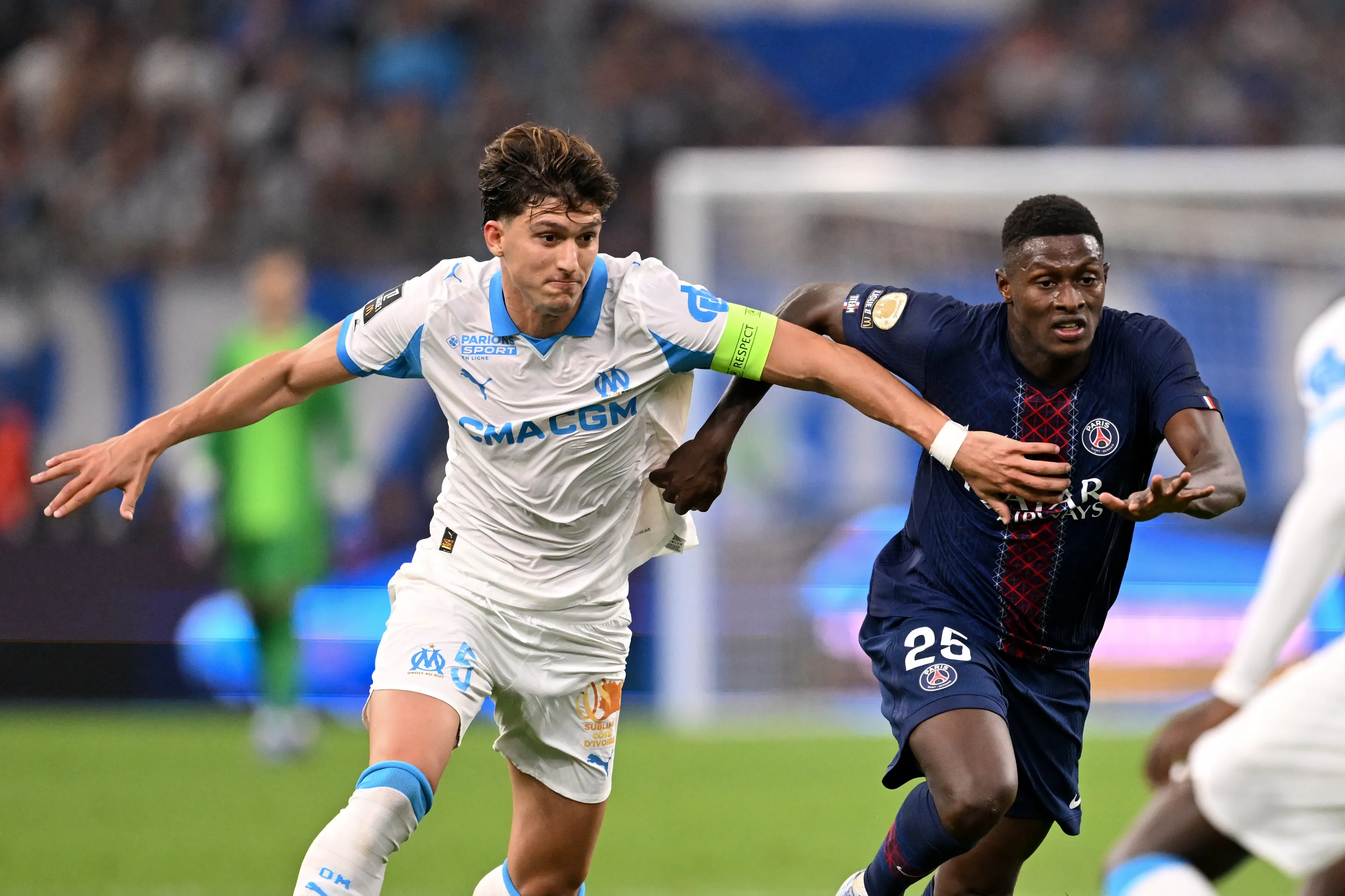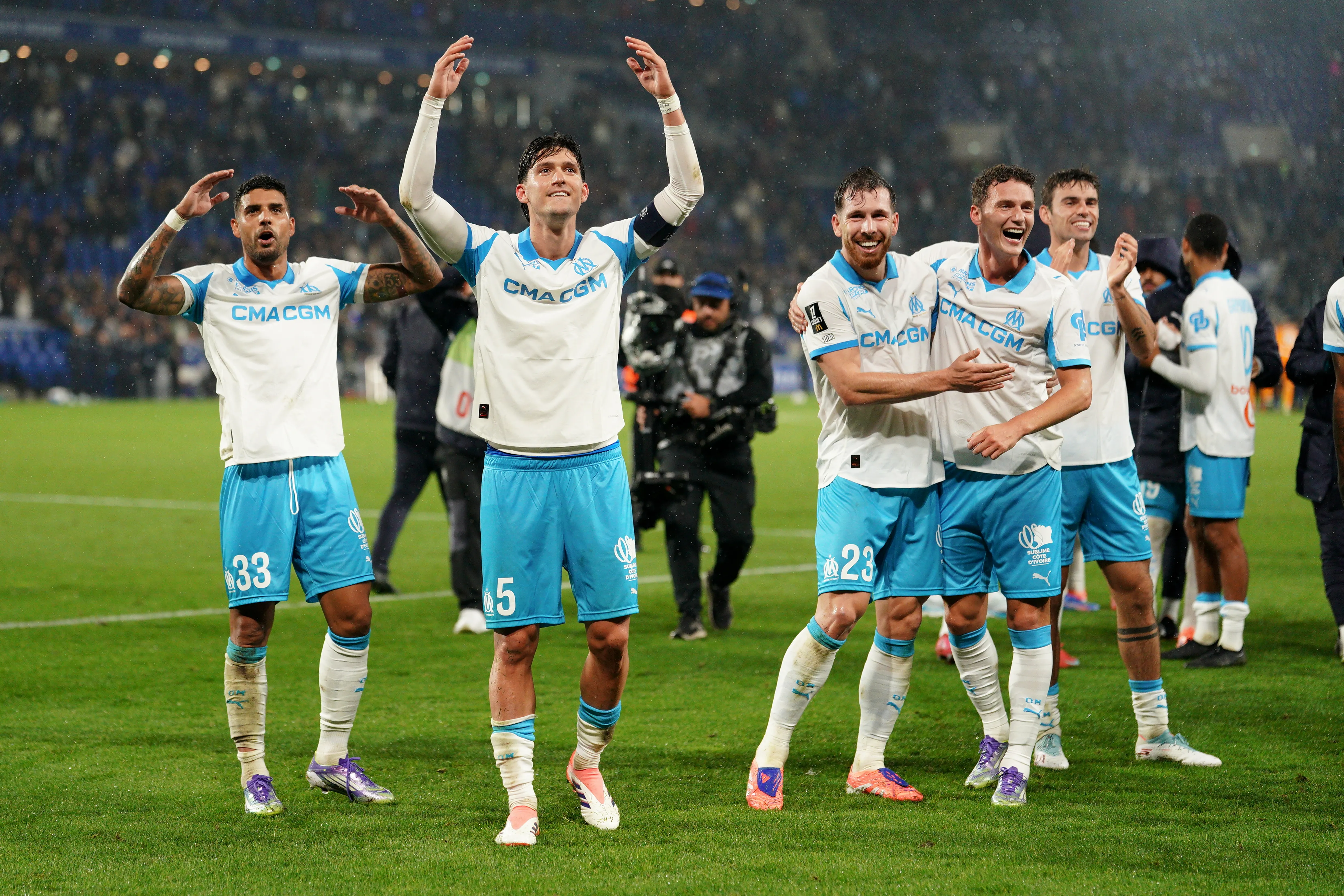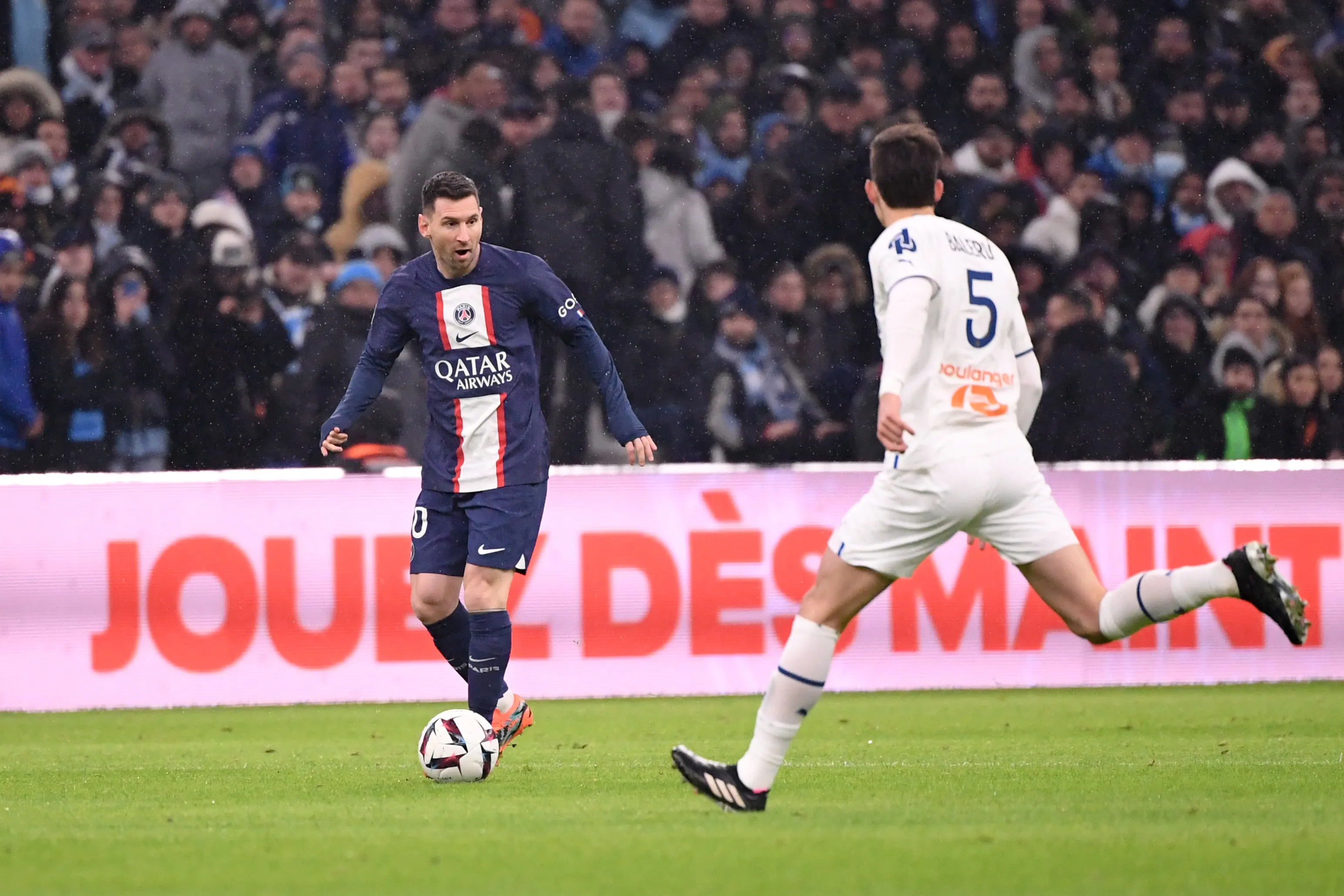Leonardo Balerdi: From turbulence to transformation at the heart of Marseille’s defence
When Leonardo Balerdi arrived in Marseille in 2021, he carried the raw CV of a young defender still waiting to grow into his potential: just ten professional matches across Boca Juniors and Borussia Dortmund, huge expectations, and even larger scrutiny.
In a city where football is lived like oxygen, he felt it immediately. His first two seasons were defined by doubt, injury, and the kind of pressure that can either break a player or forge one.
Today, he stands as captain of Olympique de Marseille, a symbol of resilience, and one of the most transformed players in Ligue 1. This is the story of how he got there.
Entering 'le volcan'
Marseille can feel like a furnace for young players. Yet, rather than melting under the heat, Balerdi found himself hardening in it. “I didn’t have the experience people expected from me,” he reflects, “but big clubs want immediate results — and that’s normal.” His early months became a crash course in expectation, scrutiny, and survival.
The moment that changed his trajectory wasn’t a goal or a standout performance, but a shoulder operation. Before that, the joint sometimes slipped mid-match — a vulnerability hidden behind stoicism. The surgery allowed him, for the first time, to play without fear. The second turning point was mental: the realisation that he could no longer let the noise of Marseille consume him. And the third came in the form of Igor Tudor, the coach whose intensity, trust and relentless demands gave Balerdi clarity and confidence.
“Tudor changed me a lot, especially mentally,” he says. “He gave me minutes, responsibility. Things shifted.”
Emerging from chaos
The 2023–24 season was a storm for OM: three managers, fluctuating results, tension everywhere. Balerdi’s evolution, though, went in the opposite direction. While the club lurched from crisis to crisis, the Argentine defender quietly became one of the team’s stabilising forces — a player who understood what OM required, and what it meant to perform for a support base that feels everything tenfold.
Leadership came not through volume but presence. “I’m better one-to-one,” he admits. “Giving players confidence — because in the past I needed that myself.”

Enter Roberto De Zerbi, and a new footballing education
Balerdi had already encountered a De Zerbi team when Marseille faced Brighton in the Europa League. “We didn’t touch the ball,” he laughs. But he kept that particular truth to himself when speaking to the Italian afterwards.
When De Zerbi took the Marseille job, he sent Balerdi a personal message that “moved” the defender — and convinced him immediately of the coach’s sincerity and intent.
What followed was a transformation in how he viewed his position. Under De Zerbi, centre-backs are not simply stoppers but the first playmakers. Gerónimo Rulli becomes a midfielder. Passing lanes become the real battlegrounds. Precision becomes non-negotiable.
“De Zerbi asked me to do things no other coach had asked,” Balerdi says. “Before, it was mostly defensive work. Now it’s both phases — and the responsibility is huge.” With Pavard, Aguerd and Medina beside him, he now operates within a defence that must think as much as it reacts.
“The Vélodrome is a mirror”
De Zerbi’s most resonant lesson is not tactical but emotional. He told Balerdi that the Vélodrome is a “specchio” — a mirror. It reflects what players give it. If they play with courage and commitment, it lifts them. If they hesitate, the stadium’s judgement is immediate.
For Balerdi, it was a sign that De Zerbi understood Marseille in a way few outsiders do. “You feel it,” he says. “The stadium gives you energy — or it tells you when you’ve fallen short.”

A rebuilt defence — and a message to a World Cup winner
The overhaul of Marseille’s back line this season has been central to the team’s revival. Pavard and Aguerd brought authority; Emerson added balance; Medina brought combativeness. Balerdi reveals a detail that says much about his leadership: he texted Pavard directly after his arrival, welcoming him. The Frenchman appreciated it, a small gesture that helped establish trust.
Healthy competition, Balerdi insists, has pushed the whole unit forward — even if it means he occasionally starts on the bench.
The Messi lessons and the Scaloni dream
As his performances have grown, so has the conversation about his international prospects. Balerdi maintains a good relationship with Argentina coach Lionel Scaloni, but discussion of the 2026 World Cup remains indirect. His goal, though, is crystal clear. “My objective is to go to the World Cup,” he says. “It would be a dream.”
Facing Lionel Messi in Ligue 1 provided its own education — and its own pressure. Before one match, friends warned him: “Do NOT injure Messi.” He laughs at the memory, but his reverence for the player is unmistakable.
“Messi represents our football, our people, our neighbourhoods,” he says. “We’ve been lucky — first Maradona, now Messi.” Sharing a dressing room with Messi in the summer? “I hope so.”

A season with real ambition
Marseille’s Champions League campaign hangs in the balance, with Newcastle the next decisive test. Domestically, the ambition is to return to Europe’s top competition — but Balerdi hints the team’s goals stretch beyond the public messaging. With De Zerbi, the squad believes something meaningful is possible this season.
“The ambition is high,” he says. “We want to achieve something.”
A city that embraces you, loudly
Nothing encapsulates his relationship with Marseille quite like the day a police van stopped abruptly in front of him, sirens roaring. He thought he was in trouble — until several officers exited the vehicle, shouting “Allez l’OM!” before driving off again.
“It was a normal day here,” he laughs. “I thought: OK, I’m home now.”
READ MORE:
>>Drogba’s Night: When Marseille Took Down Newcastle in 2004